A ‘safe’ internet is an unfree internet
The UK’s Online Safety Act is a menace to free speech and democracy.

Want unlimited, ad-free access? Become a spiked supporter.
The free and open internet has now ceased to exist in the UK. Since Friday, anyone in Britain logging on to social media will have been presented with a censored, restricted version – a ‘safe’ internet, to borrow the UK government’s language. Vast swathes of even anodyne posts are now blocked for the overwhelming majority of users.
The Online Safety Act was passed by the last Conservative government and backed enthusiastically by Labour. Both parties insisted it is necessary to protect children. Supposedly, its aim is to shield them from pornography, violence, terrorist material and content promoting self-harm. Age-verification checks, we were assured, would ensure that children would not be exposed to inappropriate content, but adults could continue using the internet as they please. Yet as we have seen over the past few days, on many major tech platforms, UK-based adults are being treated as children by default, with supposedly ‘sensitive’ content filtered from everyone’s view.
Predictably, what is deemed ‘sensitive’ and therefore censored goes well beyond pornography and obviously illegal or adult material. Already UK users of X have been blocked from viewing footage of an anti-asylum protest, a tweet calling for single-sex spaces and a video of a speech in parliament on the grooming-gangs scandal. Historical trivia, such as a thread on Richard the Lionheart, and classic artworks like Goya’s Saturn Devouring His Son have been shielded by the tech censors. A thread on X of examples of what has been censored under the Online Safety Act, collated by Benjamin Jones of the Free Speech Union, has itself been partially censored due to the Online Safety Act. Open, political debate online is now a thing of the past.
When the Online Safety Act was first put before parliament, supporters from all parties insisted that fears about its impact on free speech were overblown. ‘The worst misrepresentation I’ve heard is that the [Online Safety Act] will force tech companies to censor legal social-media posts’, insisted Chris Philp, the then minister for tech and digital economy, now the shadow home secretary, back in 2022. Anyone who warned that this vast new architecture of online speech regulation was obviously going to curtail free speech was presented as a friend of paedophiles, terrorists or the far right. This gaslighting was kept up right until the point the age filters were implemented. ‘The UK’s online safety regime is here. Will anybody notice?’, asked Politico the day before much of the internet disappeared. The Guardian, on the same day, pondered whether the new rules would be censorious enough.
The fact that so much uncontroversial content has already fallen foul of the Online Safety Act was entirely predictable. Even requiring the proactive censorship of illegal content can lead platforms to overcensor. For all the talk of the web being a wild west, firms have tended to play it safe by censoring far more than is strictly necessary to keep well inside the law. With non-compliance leading to fines of up to £18million, or 10 per cent of global turnover, whichever is greater, it was inevitable that online platforms would censor first and ask questions never.
Under the new provision that came into force last week, tech platforms are required to shield under-18s from content deemed harmful to their mental health or physical wellbeing – a categorisation that is wholly subjective and thus potentially limitless in scope. This is why such a vast range of content has already been caught in the censors’ web, from news reports to parliamentary speeches. Worse, in practice, this censorship does not just apply to children. Internet users are treated as children by default, limiting their access to what the algorithm deems ‘safe’.
Some will insist that it is still technically possible to access the newly restricted content from the UK. Some websites will allow you to submit photo ID to prove you are an adult – although X currently does not.
The use of VPNs – virtual private networks, which allow users to disguise their location – has also surged since Friday, with leading firm Proton VPN registering a 1,800 per cent increase in daily sign-ups in the UK (although this workaround may soon be closed off, if Labour follows through on its past threats to ban or restrict the use of VPNs).
Still, what the Online Safety Act has undoubtedly done is make it that much harder for British citizens to participate fully in the digital public square. And the horrors do not end with those restrictions on not-so-adult content.
Wikipedia, the free online encyclopaedia, is taking legal action against the UK government, and may have to restrict access to British users, if it is required to verify the identities of its thousands of volunteer contributors. Many smaller, unprofitable and volunteer-run platforms, which cannot bear the brunt of the new regulations, have already shut down – among them are forums for cyclists, for locals in a small town in Oxfordshire, for hamster enthusiasts. Messaging apps like WhatsApp and Signal will soon be subject to the act, meaning messages will have to be scanned to prevent ‘harmful’ content from being exchanged in private.
The Online Safety Act also creates a whole host of new criminal offences. Most alarming is Section 179 – the ‘false communications offence’ – which makes it a crime to say something you know to be false that causes ‘non-trivial psychological harm’. Breaking this anti-misinformation law can lead to a prison sentence of up to 51 weeks. Even before the act came into force, 30 people per day were being arrested for things they said online that the authorities deemed offensive. Apparently, the political class felt that the already draconian policing of our tweets did not go far enough.
The UK government’s promise to make Britain the ‘safest country in the world’ to be online was always a thinly veiled threat to make it one of the most censored. The result is an internet that is now filtered, sanitised, scrubbed of anything that might potentially upset either a child or a regulator. The UK government boasts that it is reining in the Big Tech platforms, but what it is really reining in is the British people.
Fraser Myers is deputy editor at spiked and host of the spiked podcast. Follow him on X: @FraserMyers.
£1 a month for 3 months
You’ve hit your monthly free article limit.
Support spiked and get unlimited access.
Support spiked – £1 a month for 3 months
spiked is funded by readers like you. Only 0.1% of regular readers currently support us. If just 1% did, we could grow our team and step up the fight for free speech and democracy.
Become a spiked supporter and enjoy unlimited, ad-free access, bonus content and exclusive events – while helping to keep independent journalism alive.
———————————————————————————————————————————–
Exclusive January offer: join today for £1 a month for 3 months. Then £5 a month, cancel anytime.
———————————————————————————————————————————–
Monthly support makes the biggest difference. Thank you.



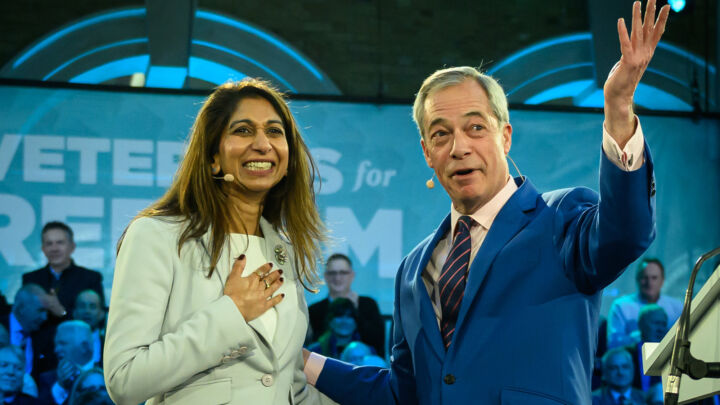
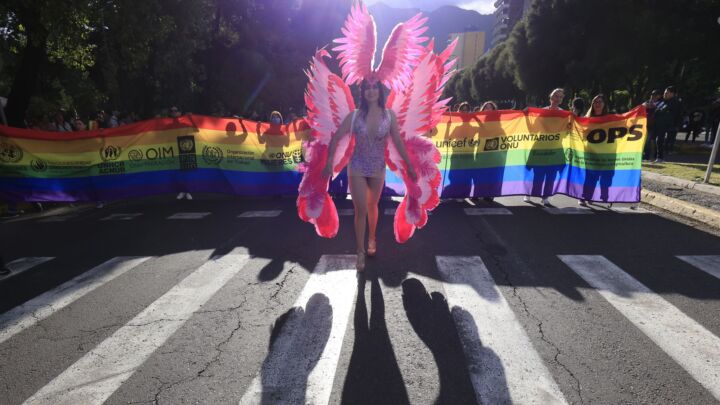
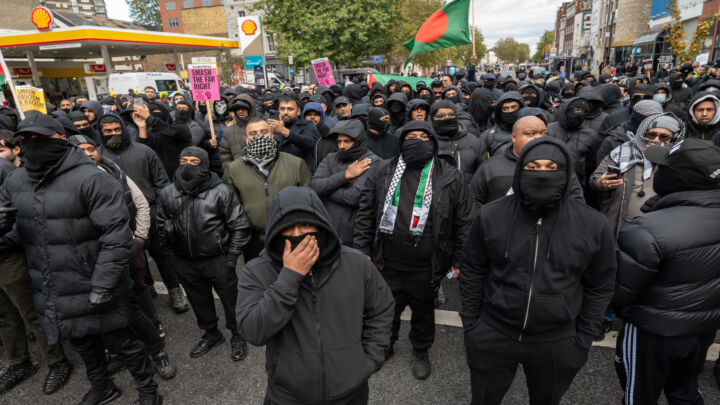
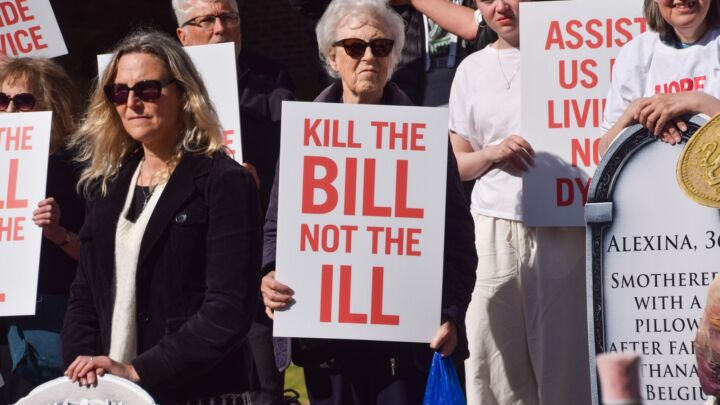
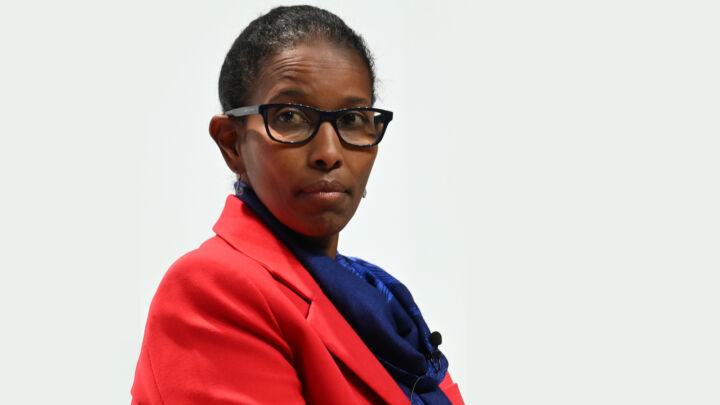



Comments
Want to join the conversation?
Only spiked supporters and patrons, who donate regularly to us, can comment on our articles.